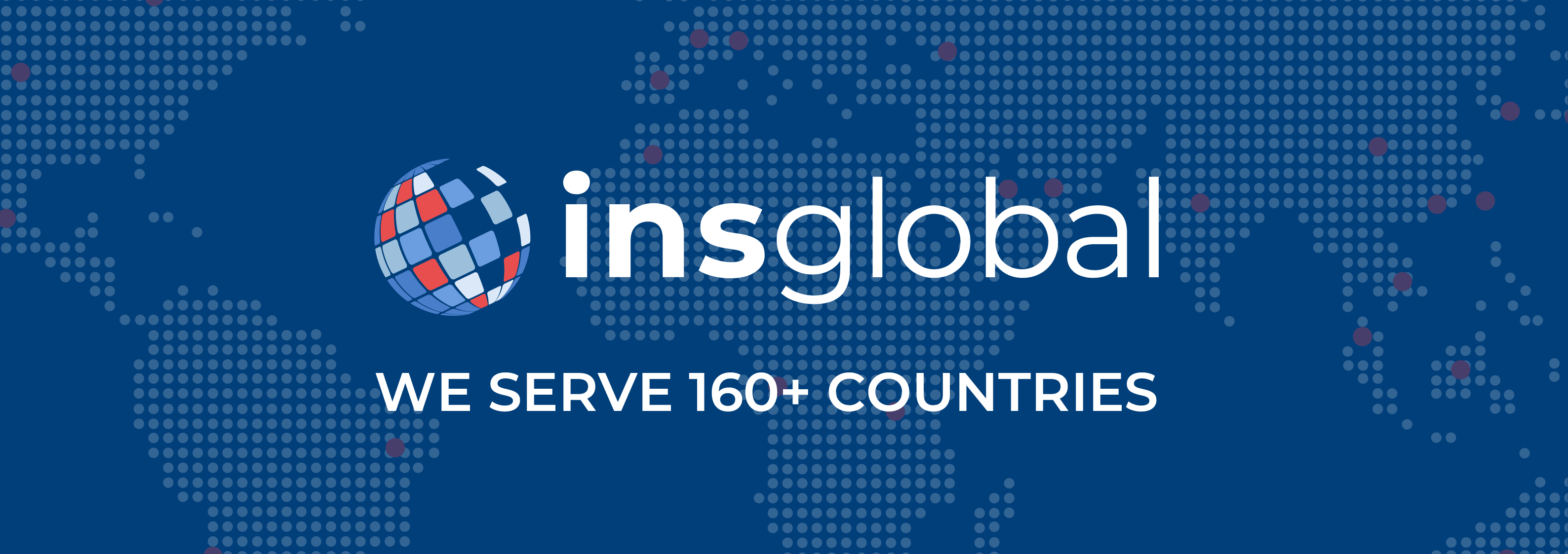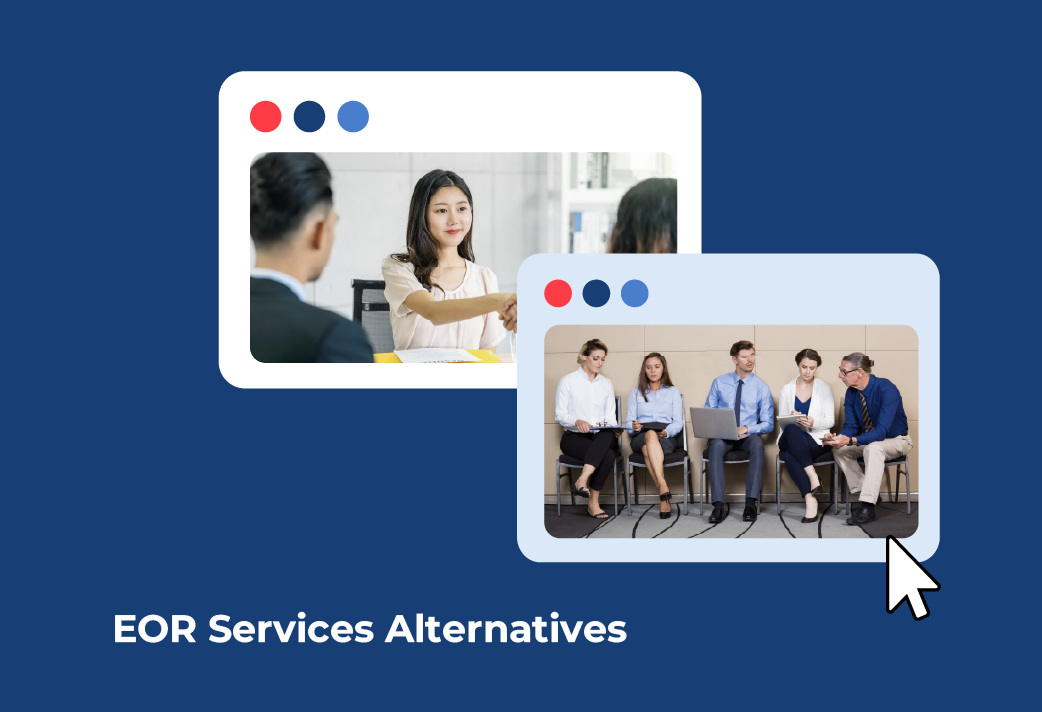Employer of Record (EOR) services are a popular choice for businesses looking to expand their global workforce without the complexities of setting up legal entities in foreign countries. However, some businesses may seek alternatives to EOR services due to unfamiliarity with the working model, specific strategic goals, or other operational needs.
Thankfully, there are several options that can provide the necessary flexibility and support for international hiring. This guide to EOR alternatives includes a range of options to choose from that can best suit your particular needs.

Tired of scrolling? Download a PDF version for easier offline reading and sharing with coworkers
What is an EOR, and What Does an EOR do for Businesses?
An EOR handles employment responsibilities on behalf of a company looking to hire or manage employees abroad, including payroll, tax compliance, and employee benefits. This allows businesses to hire and manage international employees with ease. However, while EOR services offer many advantages, they may not best suit every company or situation.
These alternatives range from establishing a physical presence in the target country to leveraging freelance talent or partnering with local organizations.
Each alternative has its own advantages and challenges, and understanding these can help businesses make informed decisions that align with their goals and resources.
Alternative 1: Open an Entity in the Country Where You Want to Hire
One of the most direct alternatives to EOR services is establishing your own legal entity in the country where you intend to hire employees.
This approach gives businesses complete control over each element of operations, from hiring to payroll and compliance with local labor laws. By setting up a subsidiary or branch office, companies can also directly manage their employees and build a stronger presence in the local market.
However, opening a legal entity in a foreign country involves significant time, effort, and financial investment. Businesses will also need to navigate complex legal requirements, tax obligations, and bureaucratic processes, which can vary widely from one country to another. In countries like China, there may even be added complications surrounding how a local entity is owned or closed down, all of which must be handled perfectly to avoid severe penalties.
This option is best suited for companies with long-term plans in the target market and sufficient resources to manage the administrative complexities involved.
Most importantly, establishing a local entity requires a deep understanding of the country’s cultural and business environment. This may include hiring new staff or even entire teams to deal with the administration of local structures and functions.
Companies must, therefore, be prepared to adapt their operations to align with local norms and practices, pay the fees, and put in the time required to make it work long-term.
Despite these challenges, having a legal entity can provide a strategic advantage, allowing businesses to establish a strong foothold in the market and fully integrate with local stakeholders.
Alternative 2: Direct Hiring in Your Country
For businesses that prefer to keep operations centralized, direct hiring within their home country’s structure can be an effective alternative to using an EOR service. This approach involves hiring international employees as remote workers under the company’s existing payroll and legal framework in the company’s country of origin. Businesses can thus maintain 100% control over employment terms and conditions while leveraging their established HR and payroll systems.
Direct hiring can be particularly advantageous for companies with a robust HR infrastructure, though it must be capable of confidently managing remote employees across every labor system the company operates in.
Importantly, not only does this require a company to be able to manage cross-border employment regulations, but remote management may not even be possible if the worker’s host country requires contracts to be managed in a different way to the workers country of residence.
Tax treaties and social security agreements in each country need to be understood to ensure compliance with both home and host country laws.
Moreover, direct hiring may limit the company’s ability to offer localized benefits and services to international employees. Businesses should consider the implications of operating under a single legal framework and whether it aligns with their strategic goals for global expansion.
Alternative 3: Professional Employer Organizations (PEOs)
Professional Employer Organizations (PEOs) provide a less involved alternative to EOR services by offering HR outsourcing solutions that include payroll, benefits administration, and compliance support without being responsible for legally employing another company’s workers.
While similar to an EOR, PEO services typically still require the company to establish a legal entity in the target country. Once an entity is in place, the PEO assumes responsibility for managing key HR functions, allowing businesses to focus on their core operations.
PEOs are well-suited for companies that have established a local presence but require additional support or streamlining in managing HR tasks. They offer flexibility in employment arrangements and can tailor services to meet the specific needs of the business.
However, relying on a PEO still requires a commitment to setting up a legal entity, which may only be feasible for some businesses. Companies must assess their long-term objectives and resource availability to determine if this model aligns with their expansion strategy.
Alternative 4: Freelancers and Independent Contractors
Hiring freelancers and independent contractors is another potential alternative to EOR services for those needing specialists abroad, often on a short-term or non-full-time basis. Contractors offer businesses the flexibility to engage talent on a project basis without the need for long-term employment commitments. This approach is particularly advantageous for companies that require specialized skills or have fluctuating workloads.
Engaging freelancers allows businesses to access a global talent pool, tapping into diverse expertise and perspectives. It also eliminates the need for complex payroll and benefits administration, as contractors typically handle their own taxes and insurance. This model provides cost-effectiveness and scalability, enabling companies to quickly adjust their workforce according to project demands.
However, managing freelancers requires clear communication and well-defined contracts to ensure mutual understanding of expectations and deliverables. Companies must also be aware of potential legal risks, such as misclassification of workers, which can lead to compliance issues. Establishing clear guidelines and maintaining proper documentation to mitigate these risks is essential.
Alternative 5: Global Employment Outsourcing (GEO)
Global Employment Outsourcing (GEO) is a comprehensive solution that combines elements of EOR and PEO services, providing end-to-end support for international hiring. GEO providers manage the entire employment lifecycle, from hiring and onboarding to payroll, compliance, benefits administration, and contract termination. This service gives a company all it needs to operate abroad without the need to adapt its strategic objectives.
One of the key advantages of GEO as an alternative to EOR is its ability to facilitate rapid expansion into multiple markets without the need to establish legal entities. This model offers scalability and flexibility, enabling companies to quickly adapt to changing business needs. GEO providers also offer local expertise and insights, helping businesses navigate complex regulatory environments and cultural differences.
While GEO services offer numerous benefits, they can be more costly than other alternatives, with less overall control over potentially essential business decisions. Companies must evaluate their budget and growth plans to determine if GEO aligns with their operational goals.
Alternative 6: Local Partnerships
Forming partnerships with local businesses or agencies is another strategic alternative to EOR services, allowing companies to leverage established networks and expertise in the target market. In some cases, these companies may even ask as a local employer to your workers through seconding or co-employment options.
Importantly, Local partners can provide valuable insights into market conditions, regulatory requirements, and cultural nuances, facilitating smoother entry and operations.
However, successful partnerships require careful selection and alignment of goals and values. Companies must conduct thorough due diligence to ensure compatibility and establish clear terms of collaboration. Building solid relationships with local partners can provide a strategic advantage and support sustainable growth in new markets.
How to Transition from EOR to Another Model
Transitioning from an alternative to EOR services to another employment model requires careful planning and execution to ensure a smooth and successful transition. Here are some key steps to consider:
- Evaluate Needs and Objectives – Assess your company’s long-term goals, budget, and resource availability to determine the most suitable alternative to EOR. Consider factors such as market presence, workforce size, and compliance requirements.
- Conduct Due Diligence – Research potential alternatives and evaluate their benefits and challenges. Consult with legal and HR experts to ensure compliance with local regulations and minimize risks.
- Develop a Transition Plan – Create a detailed plan outlining the steps and timeline for transitioning to the new model. Identify key stakeholders and allocate resources to support the transition process.
- Communicate with Employees – Always keep employees informed throughout the transition process, and address any concerns with clear information about changes in employment terms and conditions.
- Implement New Processes – Establish new HR and payroll systems and update contracts and documentation to reflect the new employment model. Ensure that all legal and compliance requirements are met.
- Monitor and Adjust – Continuously monitor the transition process and make necessary adjustments to ensure a smooth and successful implementation. Gather feedback from employees and stakeholders to identify areas for improvement.
By carefully planning and executing the transition, businesses can successfully make the move from an EOR model to an alternative approach that better aligns with their strategic goals and supports their growth in international markets.
When Working with an EOR Might Be the Best Option
While there are several alternatives to Employer of Record (EOR) services, each providing varying degrees of flexibility and control, an EOR remains one of the most effective and all-around solutions for businesses looking to expand globally without the complexities and risks associated with setting up a legal entity.
By handling payroll, tax compliance, and employee benefits, an EOR allows companies to focus on their core operations while ensuring full compliance with local regulations.
Choosing the right EOR partner can significantly impact your company’s success in entering new markets. By leveraging an EOR’s expertise, businesses can minimize administrative burdens, reduce costs, and enhance employee satisfaction.
For many companies, the peace of mind and efficiency gained through EOR services outweigh the challenges of managing alternative employment models.

Ready to simplify your global expansion?
INS Global specializes in providing comprehensive global expansion services to help you navigate the complexities of international hiring. Whether you want the confidence and control that comes with all-round options like an EOR or company incorporation, or whether you prefer to hire contractors or short-term staff to quickly meet project demands, INS Global can offer a full range of tailored solutions to meet your needs.
Our experienced team ensures compliance with local regulations in 160+ countries worldwide as you build your global presence. Contact us today to learn how we can support your growth and help you build quickly, cost-effectively, and confidently.


SHARE